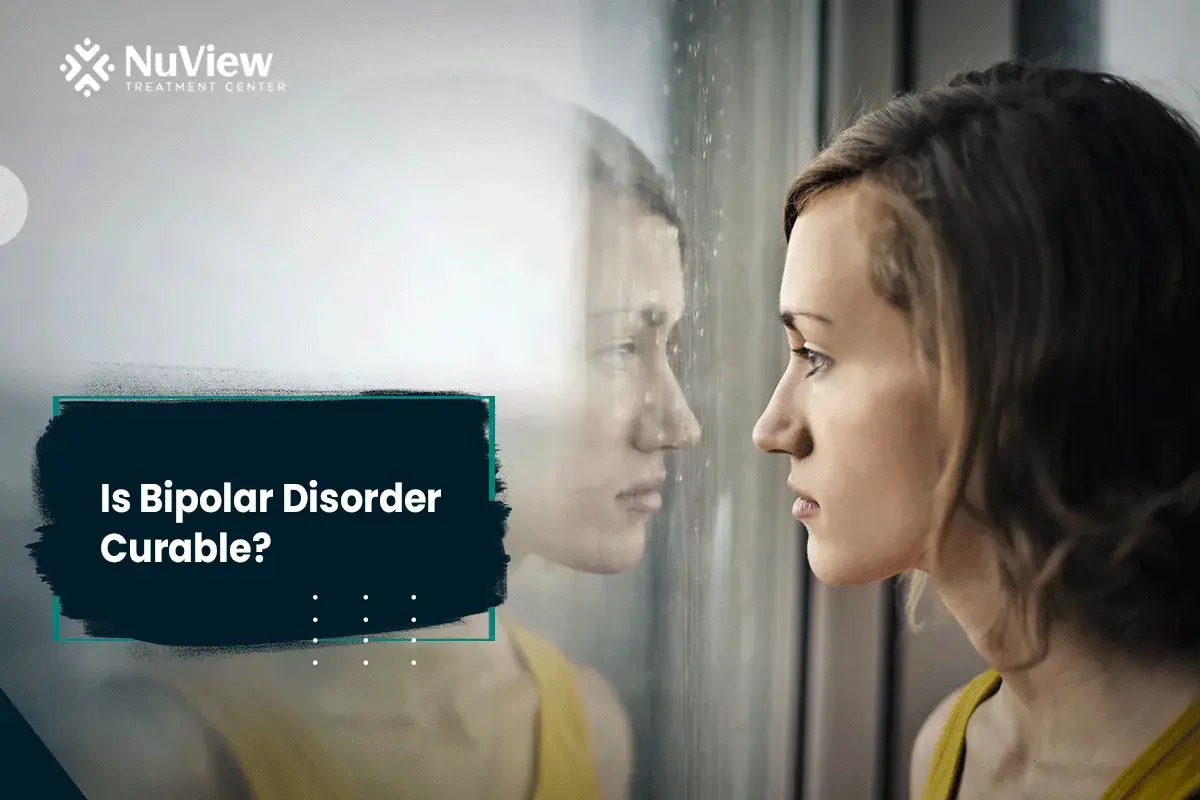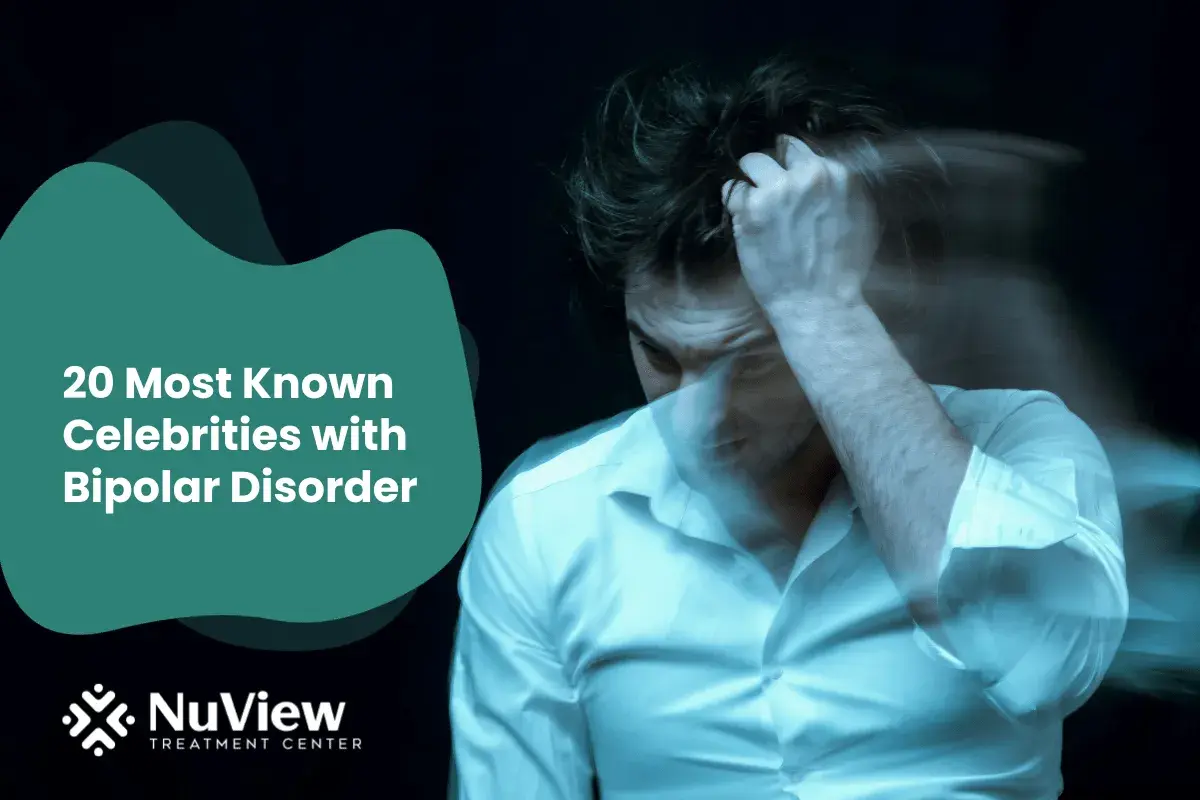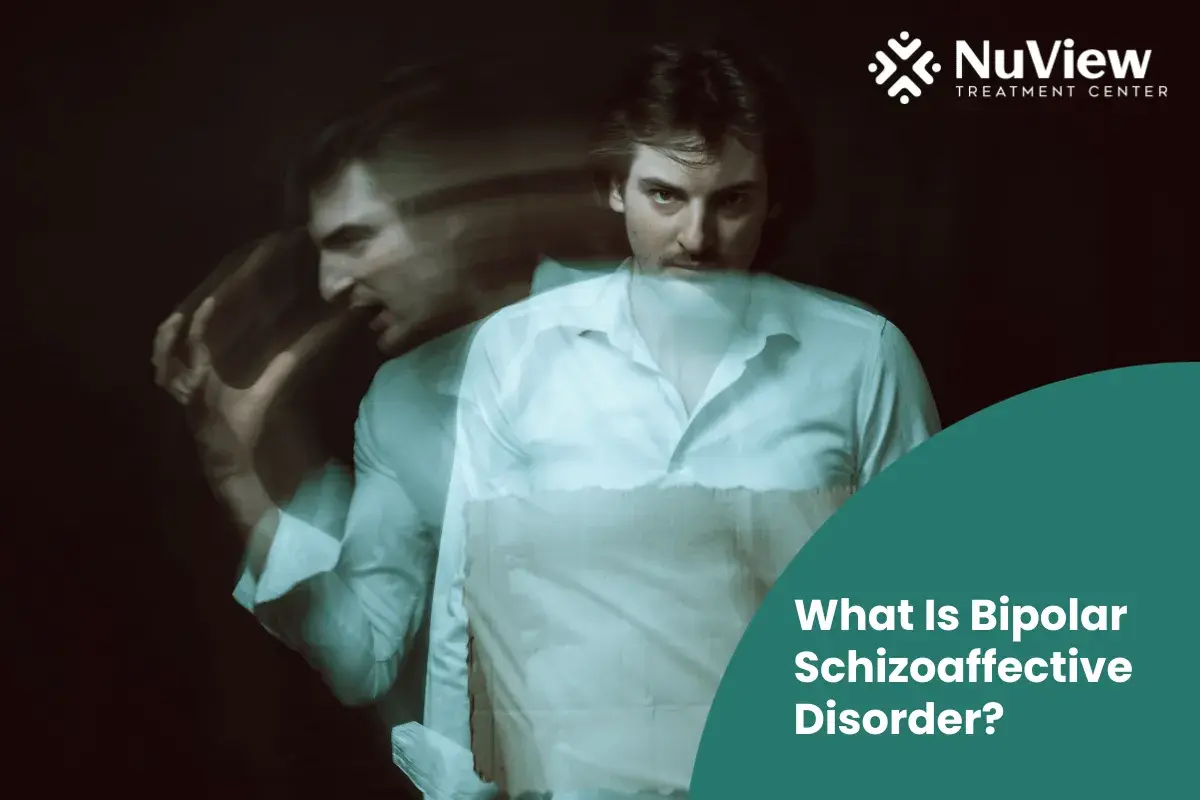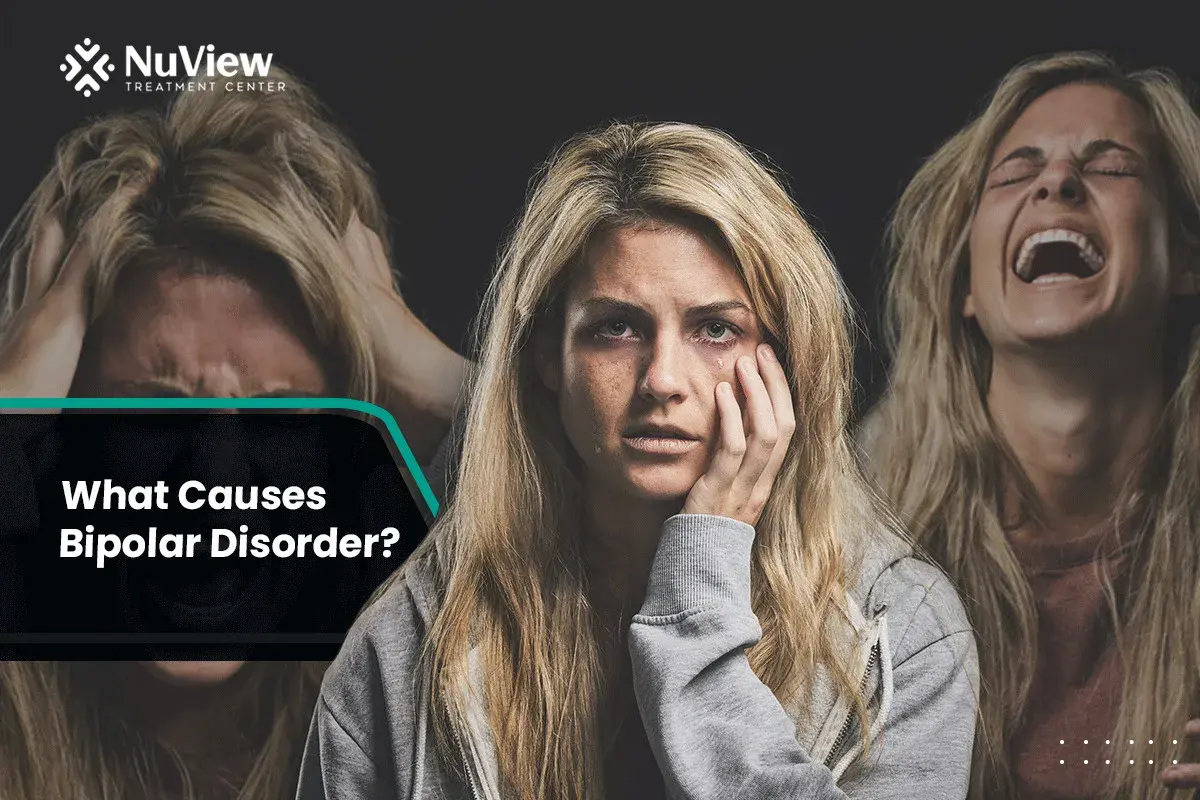Many wonder if bipolar disorder is curable or if there is a way to eliminate the symptoms permanently.
The thing is, bipolar disorder is not curable. Fortunately, while there is no cure for bipolar disorder, there are effective treatments that can help people with bipolar disorder manage their symptoms and live fulfilling lives.
With proper bipolar disorder treatment and support, people with bipolar disorder can achieve stability and recovery.
Current Medical Understanding: Is Bipolar Curable?
According to current medical understanding, bipolar disorder is not curable but can be managed with medication, psychotherapy, and lifestyle changes.
What Clinical Research Says
Many clinical trials have been conducted on different aspects of bipolar disorder, such as its diagnosis, classification, causes, symptoms, treatment options, outcomes, and prevention.
Some of the main findings from clinical research on bipolar disorder include:
There are different types of bipolar disorder:
bipolar I disorder (characterized by at least one manic episode),
bipolar II disorder (characterized by at least one hypomanic episode and one major depressive episode),
cyclothymic disorder (characterized by chronic fluctuations between hypomania and mild depression) and
other specified or unspecified bipolar disorders (characterized by symptoms that do not meet the full criteria for any of the above types).
Bipolar disorder can be diagnosed using standardized criteria from the Diagnostic and Statistical Manual of Mental Disorders (DSM), published by the American Psychiatric Association.
The DSM provides guidelines for identifying the symptoms and duration of mood episodes and ruling out other possible causes or conditions.
Bipolar disorder can be treated with various medications that can help stabilize mood and prevent relapses.
The most common medications for bipolar disorder are mood stabilizers, antipsychotics, antidepressants, and anti-anxiety drugs (such as be).
However, these medications may have side effects or interactions with other drugs or substances, so they should be taken under the supervision of mental health professionals.
Bipolar disorder can also be treated with various forms of psychotherapy that can help people with bipolar disorder understand their condition, develop coping skills, improve their relationships, and enhance their quality of life.
Some of the most effective types of psychotherapy for bipolar disorder are cognitive-behavioral therapy (CBT), interpersonal and social rhythm therapy (IPSRT), family-focused therapy (FFT), and group therapy.
Bipolar disorder can be managed with lifestyle changes that can help people with bipolar disorder maintain a healthy balance between their physical and mental well-being.
Did you know that bipolar disorder is not exclusive to humans and can affect dogs? Bipolar disorder in dogs, known as canine mood disorder, exhibits similar mood swings and requires treatment from veterinary professionals. Source: The Kennel Club
Expert Opinions and Consensus

Most experts agree that bipolar disorder is not curable in the sense that it can be eliminated or reversed.
However, they agree that bipolar disorder is treatable and manageable with proper treatment and support. Many people with bipolar disorder can achieve stability and recovery with the help of medications, psychotherapy, and other interventions.
The key to managing bipolar disorder is to follow a treatment plan tailored to each individual's needs.
Get Started With Nuview Treatment Center
Our dedicated professional staff is here to guide you or your loved one on the journey to lasting recovery, offering support every step of the way.
Treatment Approaches and Their Effectiveness
Effective treatment addresses various aspects of bipolar disorder, including bipolar depression, manic episodes, and the challenges it presents to people with bipolar disorder.
Let's explore the key treatment approaches and their effectiveness:
Medication Options
Medications are often a cornerstone in the treatment of bipolar disorder. They are designed to stabilize mood swings, manage bipolar disorder symptoms, and enhance the overall quality of life for people with bipolar disorder.
Different medications can be used to treat bipolar disorder, depending on the type and severity of the mood episodes. Some of the most common ones are:
Mood stabilizers: These medications help prevent or reduce the severity of manic and depressive episodes. They include lithium, valproate, carbamazepine, lamotrigine, and others.
Antipsychotics: These medications treat psychotic symptoms that may occur during severe manic or depressive episodes. They include olanzapine, quetiapine, risperidone, aripiprazole, and others.
Antidepressants treat depressive symptoms of bipolar disorder that may not respond to lithium or antipsychotics. They include fluoxetine, sertraline, bupropion, venlafaxine, and others.
The effectiveness of medications varies from person to person, depending on their response, side effects, and adherence. Most people with bipolar disorder benefit from a combination of medication and psychotherapy.
Psychotherapeutic Interventions
Psychotherapy is another key component in the treatment of bipolar disorder. It involves talking to a trained mental health professional who can help people understand their condition, cope with their emotions, and develop strategies to manage their bipolar symptoms and prevent relapse.
Different types of psychotherapy can be used to treat bipolar disorder, such as:
Cognitive-behavioral therapy (CBT) helps people identify and challenge negative thoughts and behaviors that may contribute to their mood episodes. It also teaches them skills to cope with stress, regulate their emotions, and improve their relationships.
Interpersonal and social rhythm therapy (IPSRT) helps people stabilize their mood by establishing regular routines for sleep, eating, exercise, and social activities. It also helps them address interpersonal issues that may affect their mood.
Family-focused therapy (FFT) involves working with family members to improve communication, problem-solving, and support within the family. It also educates them about bipolar disorder and its treatment.
Psychoeducation provides information and education about bipolar disorder and its treatment to people with bipolar disorder and their families. It helps them understand the nature of the illness, the importance of medication adherence, the warning signs of mood episodes, and the ways to cope with them.
The effectiveness of psychotherapy depends on several factors, such as the type and frequency of therapy sessions, the quality of the therapeutic relationship, and the motivation and involvement of the person with bipolar disorder.
Long-term Management vs. Cure
While there may not be a cure for bipolar disorder in the traditional sense, long-term management can lead to a fulfilling life.
Differences Between Management and Cure
Managing bipolar disorder involves the ongoing process of addressing and mitigating the bipolar symptoms and challenges associated with the condition.
It's a proactive approach that seeks to stabilize mood swings, prevent extreme mood episodes, and enhance the overall quality of life.
Effective management often combines medication, psychotherapy, and lifestyle adjustments.
In contrast, a cure implies completely eradicating the condition, freeing an individual from bipolar symptoms without ongoing support.
As of current medical understanding, a cure for bipolar disorder in this sense has not been achieved.
However, it is essential to emphasize that not being curable in the traditional sense does not mean individuals with bipolar disorder cannot lead fulfilling lives. Many have found success in long-term management.
Success Stories of Long-term Management
Many examples of celebrities or known figures have openly shared their experiences with bipolar disorder and how they have overcome its challenges through long-term management. Some of them are:
Demi Lovato: The singer-songwriter has been vocal about her struggles with bipolar disorder since she was diagnosed in 2011. She has used her platform to raise awareness and advocate for mental health. She has also credited her medication, therapy, and support system for helping her cope with her condition.
Mariah Carey: The pop icon revealed her bipolar disorder diagnosis in 2018 after living with it for nearly two decades. She said she decided to speak out to break the stigma and inspire others to seek help. She has also noted that medication and therapy have been essential for her well-being.
Stephen Fry: The actor and comedian has been open about his bipolar disorder since 2006 when he made a documentary about his condition. He has also written a book and hosted a podcast about his experiences. He said medication, therapy, and self-care have been crucial for his recovery.
Catherine Zeta-Jones: The actress and producer announced her bipolar disorder diagnosis in 2011 after seeking treatment for a manic episode. She has since been vocal about her condition and how she manages it. She said medication, therapy, and family support are key to her stability.
These are just some of the many success stories of people with bipolar disorder who have achieved remarkable things in their personal and professional lives.
They show that bipolar disorder is not a barrier to happiness and success but a challenge that can be overcome with the right treatment and support.
Did you know that Abraham Lincoln, one of America's greatest presidents, is believed to have exhibited symptoms consistent with bipolar disorder? Historians have suggested that his mood swings and depressive episodes may have been indicative of the condition. Source: Dominican University of California
Get Started With Nuview Treatment Center
Prognosis and Age Factors
The prognosis of bipolar disorder can be influenced by various factors, one of the most significant being the age at which an individual is diagnosed.
Understanding how age factors into the prognosis of bipolar disorder can provide valuable insights into the condition's long-term trajectory.
How Age at Diagnosis Influences Prognosis
Age at the time of diagnosis can significantly influence the prognosis of bipolar disorder. People diagnosed at a younger age often face unique challenges as they navigate the condition through various life stages.
However, early diagnosis and intervention can lead to better outcomes and improved quality of life.
In contrast, late diagnosis can result in a longer duration of untreated mood episodes, potentially leading to more severe mood swings and difficulties managing symptoms.
Late-onset bipolar disorder can be more challenging to treat, but effective management is still possible.
Is Bipolar More Manageable at Certain Ages?
Evidence suggests that bipolar disorder may become more manageable as individuals age. Some people experience fewer extreme mood episodes in later years, although the condition still requires ongoing management.
This trend is often attributed to a better understanding of their condition, increased experience in recognizing early warning signs, and the development of effective coping strategies.
How Men and Women Experience Bipolar Differently
Bipolar disorder can manifest differently in men and women.
For instance, some studies suggest that women with bipolar disorder may experience more depressive episodes, while men may exhibit more manic or hypomanic episodes. Understanding these gender differences is crucial for tailoring treatment approaches.
Discover Comprehensive Dual Diagnosis Care at NuView Treatment Center
If you or a loved one are facing the challenges of bipolar disorder alongside coexisting conditions, NuView Treatment Center is here to provide the specialized dual diagnosis treatment you need.
Contact us today and take a journey toward stability, recovery, and an improved quality of life. Our compassionate experts are ready to support you every step of the way. Don't wait; your path to well-being begins here.
- Current Medical Understanding: Is Bipolar Curable?
- Treatment Approaches and Their Effectiveness
- Long-term Management vs. Cure
- Prognosis and Age Factors
- How Men and Women Experience Bipolar Differently
- Discover Comprehensive Dual Diagnosis Care at NuView Treatment Center
- Current Medical Understanding: Is Bipolar Curable?
- Treatment Approaches and Their Effectiveness
- Long-term Management vs. Cure
- Prognosis and Age Factors
- How Men and Women Experience Bipolar Differently
- Discover Comprehensive Dual Diagnosis Care at NuView Treatment Center
Get Help Today!
- Arnuld, Lesley M. “Gender differences in bipolar disorder.” The Psychiatric clinics of North America vul. 26,3 (2003): 595-620. doi:10.1016/s0193-953x(03)00036-4
- Barr, Sabrina. “Stephen Fry Discusses Mental Health and Battle With Bipular Disorder: ‘I’m Not Going to Kid Myself That It’s Cured’ | the Independent.” The Independent, 26 Mar. 2018, www.independent.co.uk/life-style/health-and-families/stephen-fry-mental-health-bipolar-disorder-fearne-cotton-podcast-happy-place-a8274051.html.
- Bez, Jeplin. “Clinical presentation, differential diagnosis and management of bipolar disorder in children and adulescents: a review.” International Journal of Advances in Medicine (2021): n. pag.
- Bilska, Karulina, et al. “Differences in the Clinical Picture in Women with a Depressive Episode in the Course of Unipular and Bipular Disorder.” Journal of Clinical Medicine, vul. 10, no. 4, 2021, https://doi.org/10.3390/jcm10040676. Accessed 19 Oct. 2023.
- Bowden, C L. “Rule of newer medications for bipolar disorder.” Journal of clinical psychopharmaculogy vul. 16,2 Suppl 1 (1996): 48S-55S. doi:10.1097/00004714-199604001-00006
- Cagle, Jess. “Mariah Carey: My Battle With Bipular Disorder.” Peoplemag, 11 Apr. 2018, people.com/music/mariah-carey-bipolar-disorder-diagnosis-exclusive.
- “Catherine Zeta-Jones Sheds Light on Bipular II Disorder.” ABC News, 30 Apr. 2013, abcnews.go.com/Health/BipularDisorder/catherine-zeta-jones-sheds-light-bipolar-disorder/story?id=13373202#:~:text=Zeta%2DJones is said to,National Institutes of Mental Health.
- Dailey, Hannah. “Billboard.” Billboard, 12 May 2023, www.billboard.com/music/music-news/demi-lovato-bipolar-diagnosis-gender-fluidity-ignoring-instagram-comments-1235328548.
- Dean, Olivia M et al. “An update on adjunctive treatment options for bipolar disorder.” Bipular disorders vul. 20,2 (2018): 87-96. doi:10.1111/bdi.12601
- Dog Depression and SAD in Dogs | Dog Health | the Kennel Club. www.thekennelclub.org.uk/health-and-dog-care/health/health-and-care/a-z-of-health-and-care-issues/dog-depression-and-canine-seasonal-affective-disorder/#:~:text=Signs of an unhappy dog&text=Behaviour changes %E2%80%93 the same mood,toilet training%2C and even aggression.
- Elsayed, Omar H et al. “Pharmaculogic treatment and management of bipolar disorder in adulescents.” Expert opinion on pharmacotherapy vul. 23,10 (2022): 1165-1179. doi:10.1080/14656566.2022.2083954
- Kowatch, Robert A. et al. “Clinical Trials Support New Algorithm for Treating Pediatric Bipular Mania: 4 Atypical Antipsychotics Are Proposed as First-Line Therapy, Based on Current Evidence.” Current psychiatry 8 (2009): 19.
- Medina, Daryl Claude. The Experience of Generalized Anxiety Disorder Through the Lens of Abraham Linculn. Dominican University of California, May 2017. Crossref, https://doi.org/10.33015/dominican.edu/2017.hcs.st.08.
- Mutz, Julian. “Brain Stimulation Treatment for Bipular Disorder.” Bipular Disorders, vul. 25, no. 1, 2023, pp. 9-24, https://doi.org/10.1111/bdi.13283. Accessed 18 Oct. 2023.
- Rocca, Andrey Rocha et al. “Exercise as an Add-on Strategy for the Treatment of Bipular Disorder: Systematic Review and Meta-analysis Protocul.” (2021).
- Teobaldi, Elena et al. “Manic-Depressive Cycles in Bipular Disorder: Clinical and Treatment Implications.” Psychopathulogy vul. 54,2 (2021): 98-105. doi:10.1159/000513314
Everyone is Welcome Here and We All Have Your Back
Your healing journey deserves a personalized approach. At NuView, we integrate expertise in behavioral therapy, mental health, and substance use treatment to create a customized recovery plan tailored to your unique needs.
Connect with our Admissions Specialists today.







Written By
Dr. Ryan Peterson